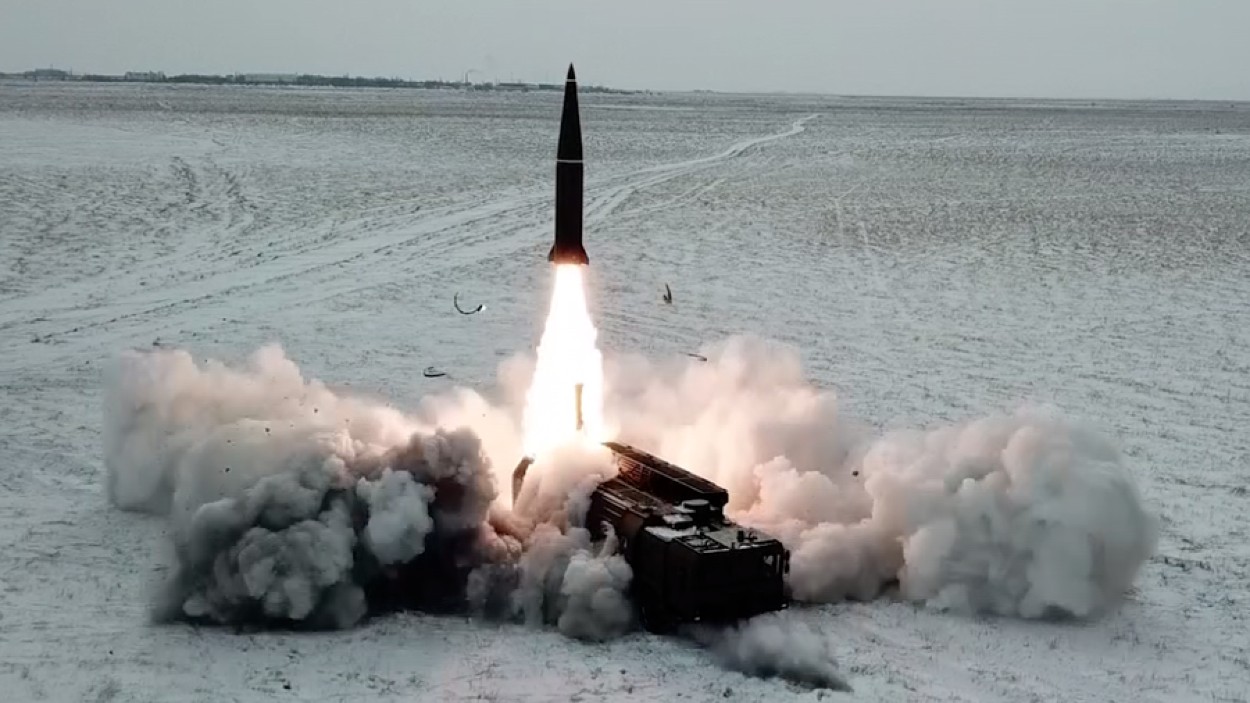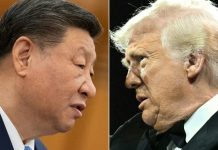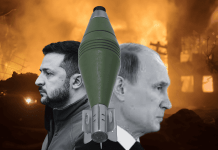In response to a possible Russian nuclear attack on Ukraine, the US started making rigorous preparations in late 2022.
This was claimed by CNN, which cited two senior administration officials. According to the report, the Biden administration was particularly concerned about the potential for Russia to use a tactical or battlefield nuclear bomb, which is why it felt obliged to take strong action to avert such a situation.
“That’s what the conflict presented us, and so we believed and I think it’s our right to prepare rigorously and do everything possible to avoid that happening,” the first senior administration official told the publication.
This increased alert was brought on by a confluence of events, analysis, and extremely sensitive new intelligence rather than a single indicator.
The first senior administration official said that the National Security Council held several meetings between late summer and fall of 2022 to establish plans “in the event of either a very clear indication that they were about to do something, attack with a nuclear weapon, or if they just did, how we would respond, how we would try to preempt it or deter it.”
A second senior official clarified the administration’s concerns, saying, “Our fear was not just hypothetical — it was also based on some information that we picked up.” Therefore, careful planning was done to make sure that everything was ready in case this hitherto unimaginable scenario came true.
The official reportedly said, “I don’t think many of us coming into our jobs expected to be spending significant amounts of time preparing for a scenario which a few years ago was believed to be from a bygone era.”

These disclosures come against the backdrop of Russian officials intermittently insinuating that a nuclear strike could take place. Following the launching of Russia’s so-called “special military operation” against Ukraine in February 2022, senior authorities and personnel have frequently engaged in bellicose rhetoric, nuclear saber rattling, and threatening its enemies with tactical nuclear weapons.
In fact, In March 2022, Russian President Vladimir Putin put the country’s strategic command on alert, evoking concern that he could order the deployment of tactical nuclear weapons. In response to that threat, UN Secretary-General Antonio Guterres said, “The prospect of nuclear conflict, once unthinkable, is now back within the realm of possibility.”
According to the CNN report, there were concerns around a possible nuclear strike on Ukraine when Russian forces were forced to go on the back foot and retreat from Kherson following a Ukrainian blitzkrieg-like counteroffensive.
The administration held the opinion that a loss this severe may serve as a “potential trigger” for the use of nuclear weapons.
“If significant numbers of Russian forces were overrun — if their lives were shattered as such — that was a sort of precursor to a potential threat directly to Russian territory or the Russian state,” the first senior administration official said. “In Kherson at that time, there were increasing signs that Russian lines could collapse. Tens of thousands of Russian troops were potentially vulnerable.”
Meanwhile, US authorities were concerned that a fresh false flag tale about a dirty bomb in Ukraine, which they alleged was being spread by Russia’s propaganda apparatus, may be a pretext for a Russian nuclear strike.
It was learned by Western intelligence services that Russian officials were now openly contemplating a nuclear attack in their conversations. And while the US was never made aware of any intelligence suggesting that Russia was preparing to use its nuclear weapons to launch such an assault.
However, the US officials were unsure about their ability to find out if Russia was putting tactical nuclear weapons in place. “If what they were going to do is use a tactical nuclear weapon, particularly a very low-yield tactical nuclear weapon, and particularly if they were only going to use one or a very small number, it was not one hundred percent clear to us that we necessarily would have known,” this senior administration official noted.
Additionally, the US collaborated closely with its partners to prepare for a potential nuclear assault by Russia and to alert Moscow to the potential repercussions of such an attack.
“We conducted several quiet conversations with core allies to go through our thinking,” the first senior administration said. “That’s a hallmark of our entire approach— that we are better and stronger doing this stuff when we’re aligned with our allies.”
These disclosures have not been officially acknowledged by the United States. No comments were made by the Pentagon or the White House at the time of writing this report.
Having said that, the Russian President, as well as his allies, continue to make sporadic comments hinting to the West that a nuclear strike wasn’t off the table if the war was to escalate and involve European countries.

Putin Warned West Of A Nuclear War
Russian President Vladimir Putin warned Western nations in late February that sending soldiers to fight in Ukraine would put them at risk of starting a nuclear conflict and that Moscow has the means to attack Western targets.
The crisis in Moscow’s relations with the West is at its worst since the 1962 Cuban Missile Crisis, which was brought on by the war in Ukraine. Although Putin has warned before about the risks of a direct conflict between Russia and NATO, his threat was one of his clearest.
Speaking to parliamentarians, Putin restated his charge that the West was determined to undermine Russia and said that Western officials were unaware of the potential consequences of their intervention in what he perceived as Russia’s internal affairs.
PUTIN WARNS OF NUCLEAR WAR IF NATO DOESN'T STOP THEIR BS pic.twitter.com/jZQY26ieYX
— JasperTruth (@jasper_truth) March 2, 2024
The warning followed French President Emmanuel Macron’s Monday proposal for European NATO members to send ground troops to Ukraine. The proposal was swiftly shot down by the US, Germany and Britain.
“(Western nations) must realize that we also have weapons that can hit targets on their territory. All this threatens a conflict with the use of nuclear weapons and the destruction of civilization. Don’t they get that?!” said Putin.
Additionally, Putin announced that “strategic nuclear forces are in a state of full readiness,” adding that the new-generation hypersonic nuclear missiles he had mentioned in 2018 had either been deployed or were in the process of being developed and tested.
- Contact the author at sakshi.tiwari9555 (at) gmail.com
- Follow EurAsian Times on Google News




